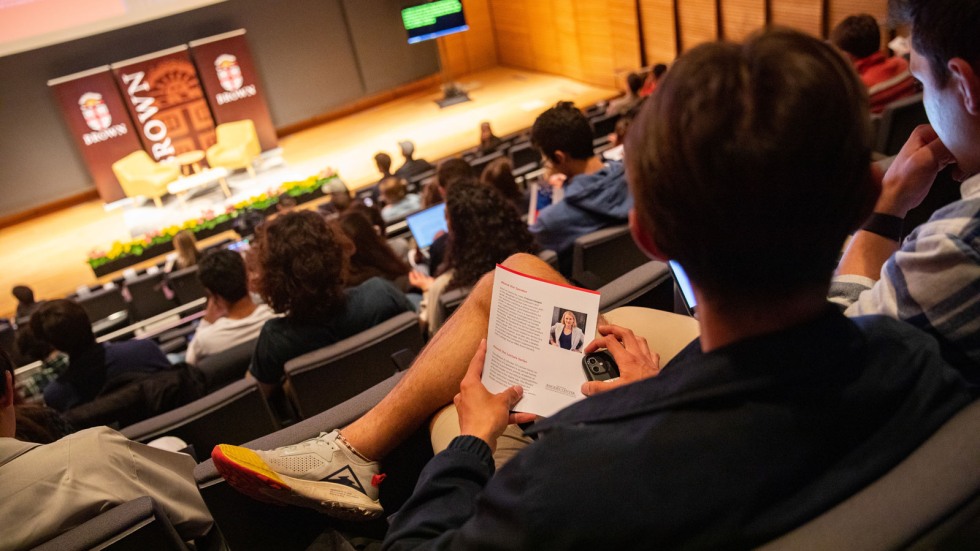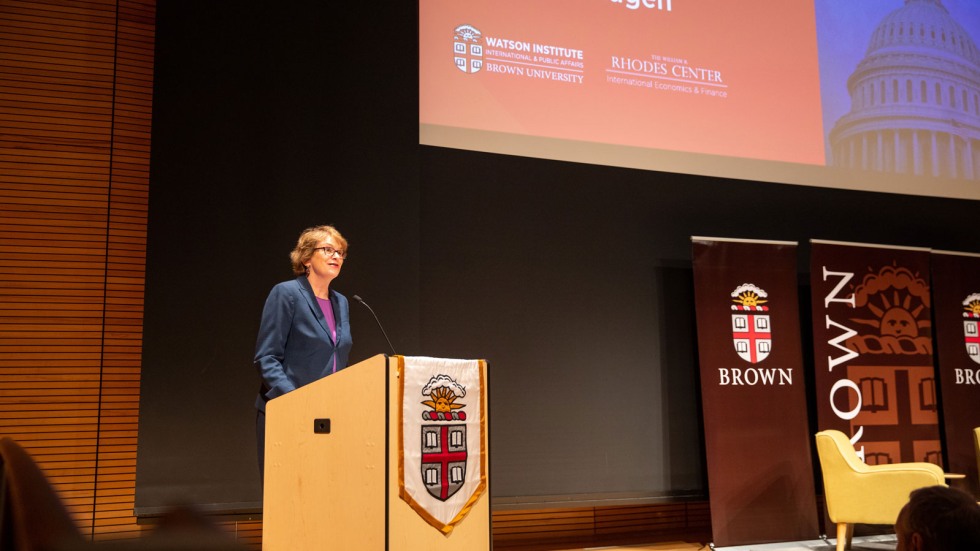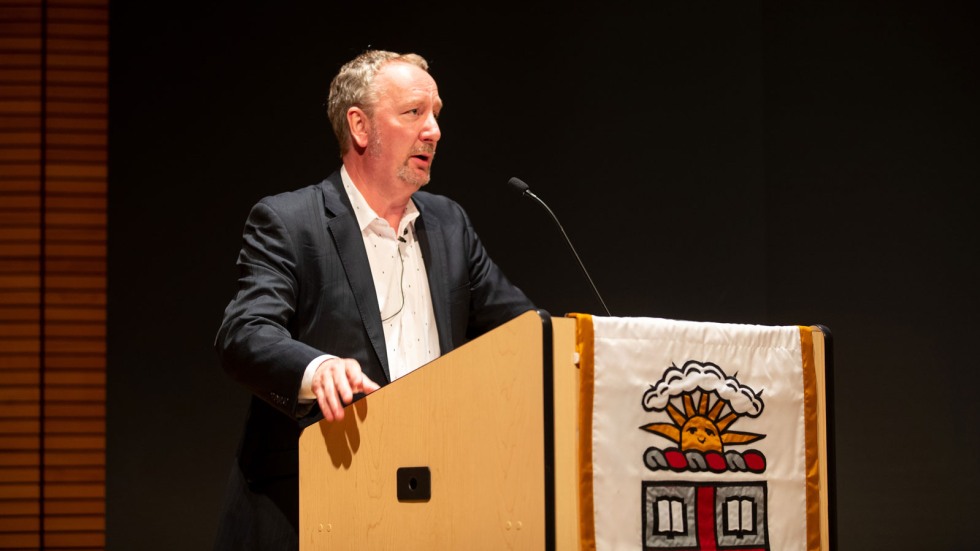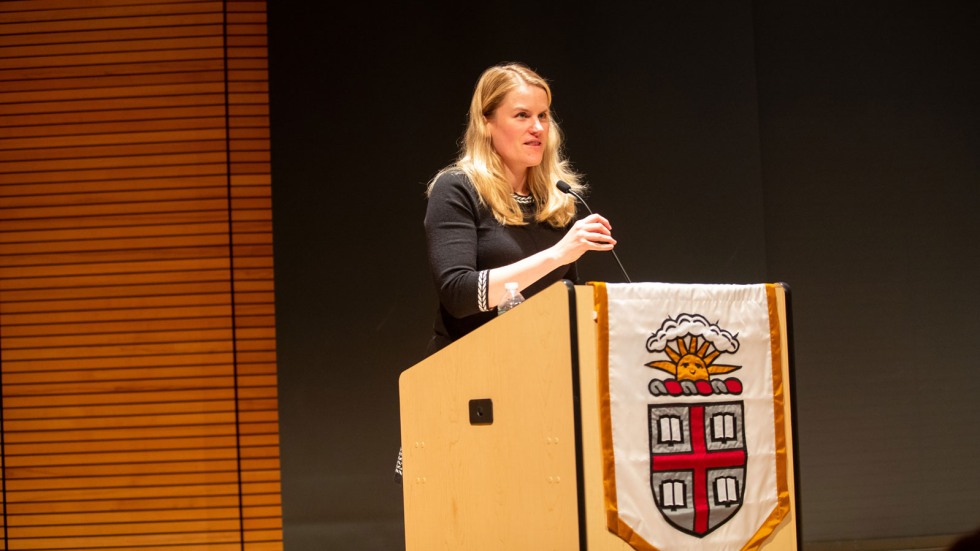PROVIDENCE, R.I. [Brown University] — Society will wrestle with and ultimately solve the complex issues brought about by social media platforms such as Facebook, just as it did after the advent of other new forms of communication in history, from the printing press to the television screen.
That’s what Frances Haugen told an audience at Brown University’s Granoff Center for the Creative Arts on Wednesday, April 27.
And Haugen should know — better known as the Facebook whistleblower, she worked as a product manager at the tech giant before filing a series of complaints claiming that the company misled the public on how it handles issues including climate change, misinformation, hate speech and the platform’s effect on mental health.
Since going public and leaving Facebook, Haugen has testified in front of the U.S. Congress and global government bodies, and has engaged with lawmakers internationally on how to best address the negative effects of social media platforms.
Her appearance at Brown, titled “Reforming Social Media from the Inside,” served as the inaugural event of the William R. Rhodes ’57 Lecture Series on the Ethics of Capitalism. She touched on many issues, including censorship and the danger of algorithms, and gave the audience an insider’s look of what her experience was like working for Facebook.
“I came forward because I saw that there was a very, very, very critical problem that I felt with a high degree of confidence was going to lead to continual deaths in the most fragile places in the world,” she said, expressing concern for parts of the world where many people can access data for free via Facebook or, otherwise, pay for internet service. “Our brains are triggered to pay more attention to things that scare us. Things that make us angry, things that make us go into fight or flight. The only problem there is it means the shortest path to a click is hate in its raw forms.”
Haugen made it clear that she’s not against social media but, instead, the algorithms that guide user engagement.
“My core complaint with Facebook is about engagement-based ranking, about algorithms that direct our intention instead of having humans direct our attention,” she said. “We can still have social media that connects us with people, that helps us know what's up with our family and friends but doesn't rely on algorithms to direct our attention — because unless we have hyper-vigilance on those algorithms, they're always going to be trying to accomplish things that are different from what we set out” to do.
So, what’s the solution? Haugen said she wants to work on designing simulated social network systems to test ways to improve how content is delivered.



